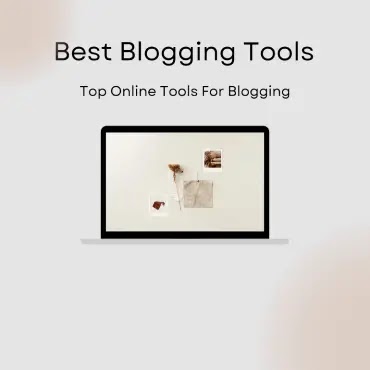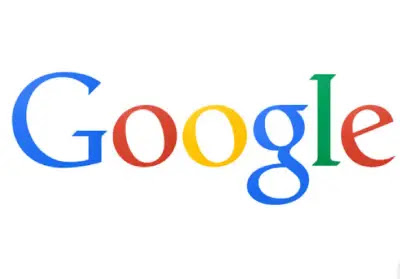A blog is a great way to share your thoughts and ideas with the world. Blogging tools help you create, publish, and share your content. This article will take a look at some of the best blogging tools available today. We will discuss what each tool does and why it’s useful. So, here is a list of the 10 top online tools for blogging. These 10 blog tools that we found are great for creating content consistently. These tools will help bloggers find the inspiration to post quality content regularly. They are also helpful for people who want to grow their blog following because these tools can help with scheduling, analytics, and other blogging tasks.
Table of Contents
1. WordPress
2. Canva
3. Grammarly
4. Ahrefs
5. Google
6. Ubersuggest
7. HubSpot Topic Generator
8. Bluehost
9. Meme Generator
10. Pexel
Final Thoughts
1. WordPress
WordPress is one of the most popular blogging tools out there with over 60 million installations worldwide! It’s also free to use for personal websites as well as blogs. One reason for its popularity is that it’s very easy to use and has plenty of templates to choose from. The downside is that it’s not mobile responsive so you may have issues viewing your blog on mobile devices if you don't have a personal computer or laptop.
WordPress is free and open-source software that powers millions of websites. It's a great option for bloggers, small businesses, and anyone who wants to create a beautiful website or blog.
WordPress is easy to use, but it can take some time to learn how everything works. With WordPress, you can start building your website and start blogging today.
2. Canva
Canva is a free online design tool that can be used for creating custom images for blog posts, social media posts, and more.
Canva is a free online design tool that provides users with the ability to create custom images for their blogs, social media posts, and more. It offers a variety of templates to choose from and it has drag-and-drop functionality so users can easily customize them to suit their needs.
Users who are looking to create custom graphics should consider using Canva as it is an easy-to-use alternative to Photoshop or Illustrator.
Canva is a free design tool that can be used for creating blog graphics. It has a clean interface and provides templates for various types of visuals. The templates are easy to use and one can add images, text, shapes, and symbols with just a few clicks. The best thing about Canva is that it has the option to add animations to the images which makes the blog post more interesting. One can also import their photos from the library or other sources like social media or Google Photos.
3. Grammarly
Grammarly is a grammar-checking and writing tool that helps people write clearly and correctly.
Grammarly's features include:
- A spell checker that understands the context of the sentence and provides suggestions for words with similar spellings, like “teh” vs. “the”
- A contextual spelling checker that checks for typos in words like "dis" vs. "this"
- A grammar checker that flags commonly confused or misused words, such as “to, too, two” or "affect, effect"
- A plagiarism detector to help avoid accidentally copying content from other sources.
4. Ahrefs
Ahrefs is a powerful SEO tool that can help bloggers in their daily blogging routine. The tool has features like keyword research, site audit, and rank tracker. It also has a keyword explorer which helps to find content ideas for the blog post by looking at the keywords that are already ranking well on Google.
The Ahrefs blog itself is full of useful information for bloggers who want to make their blog posts more search engine friendly and have them rank higher on Google.
5. Google
Google is one of the greatest online tools that has ever been created by man. It’s a search engine (obviously), a map of the world, a translator, a calculator, a calendar, and more. But, most importantly it is a gateway to a vast ocean of information. Without it, millions of people would never have had the opportunity to learn, grow and prosper. Google is contributing more to the growth of a blogger’s blog than any other marketing tool. Google Search Console, Google Analytics, Google Adsense, and Google Adwords are the free tools that a blogger can use to manage their blog.
So, how exactly does it help you in your blogging journey?
i. Google Search Console
Google Search Console (previously known as Google Webmaster Tools) is a free service that provides you with important information about your sites such as their crawl errors, your sitemap, links to your site, and more. This is the place where you can easily check your website’s performance. It gives you detailed reports on your keywords, search engine optimization, quality score, page speed, and more.
ii. Google Analytics
Google Analytics is also a free tool that you can use to track your site’s traffic and analyze your site’s visitor behaviour. This is an extremely important tool for bloggers. It helps you track your website’s performance, understand your audience and find out what you need to do to improve your website.
iii. Google AdSense
Google Adsense is a service that allows you to display targeted ads on your site based on the content of your site. You can use Google Adsense to make money from your blog. There are 2 types of ads you can choose from text ads and display ads.
iv. Google ads
Google Ads is a service that allows you to run search engine advertisements on your site. You pay each time a user clicks on your ad. This is Google’s platform for placing text and display ads on your website. There are 2 types of ads you can choose from text ads and display ads.
v. Blogger
Blogger is one of the best free tools for anyone who wants to start a blog. Blogger is a free blog publishing tool from Google. With Blogger, you can create a blog within minutes or just sign in with your Google Account and start blogging right away. It has a clean and simple user interface, and it’s easy to use. Blogger’s dashboard lets you easily add new posts, format text, and images, and add media. Blogger also gives you the ability to customize your blog with a choice of themes. You can even create an e-commerce blog with Blogger. You Can Read: Top 9 Digital Products You Can Sell Online
6. Ubersuggest
You are trying to find the best keywords for your latest blog post or content marketing campaign and you ask yourself: "How many keywords can I use in my content?" or "How many times should I mention the keywords in my content?" or "What are the most relevant keywords I should use in my content?" These are a few questions that may be on your mind when you are writing your next content piece. If you are struggling to find the best keywords that you can use in your content, then you are in the right place.
Ubersuggest is a simple online tool that helps you to brainstorm and find the best keywords you can use in your content. It is a free tool that gives you a list of related keywords to choose from. Ubersuggest is a tool that is designed to help you to find additional keywords that you can use in your content. It uses a keyword suggestion tool that is based on Google's Autocomplete feature.
This is an excellent tool that you can use for free for your content marketing campaigns. It will help you to find the best relevant keywords that you can use in your content. You can use Ubersuggest to find keywords that you can use in your content to improve your search engine rankings.
7. HubSpot Topic Generator
As a blogger, you know that finding blog topics that are interesting and relevant to your audience is tough. Well, you don’t have to look further because these HubSpot's topic generators are your best friend when it comes to generating blog post ideas. If you’re a HubSpot user and a blogger, then you already got the most of it.
Also Read: Top 7 AI Copywriters to Help You Create Better Content
8. Bluehost
Put it this way: Bluehost is not one of the best online tools for blogging. It is the best online tool for blogging! When you are starting a blog and you want it to succeed, you need a great web host. The hosting company you choose will make a huge difference in your blogging experience. We've all heard horror stories of bloggers who've had their sites hacked and their visitors attacked by hackers who were hosted on a cheap, poorly maintained server. You don't want your blog to be a victim of a poorly maintained server. You want your blog to be hosted on a server run by a great hosting company.
Blogging is a time-consuming task and requires you to have the right tools to get the job done quickly. Bluehost is one of the best web hosting companies out there in terms of reliability, security, speed, and pricing. Here are some of the benefits of using Bluehost that are making it one of the best tools for blogging:
• You can start a blog for as low as $2.95/month with Bluehost.
• Get a free domain and a free website builder tool.
• Secure hosting with industry-leading features.
• They are among the best in the industry with a 99.9% uptime guarantee.
• Free migration and 24/7 support.
Click here to start with Bluehost
You Can Also Read: BLUEHOST REVIEW 2022: Is Bluehost Worth Signing Up For?
9. Meme Generator
The Meme Generator is one of the best online tools for blogging. It can be used to create captions for images so that the images can be used in blogs. The Meme Generator is a free online tool that allows users to create meme captions for images. It can be used to generate captions for images that are already uploaded on the internet or for images that are uploaded by the users themselves. The Meme Generator does not require any downloads or plugins to be installed to use it.
10. Pexel
The Internet is full of amazing, inspiring images and videos. Getting them is a pain, though. Most require attribution, and most require a lot of work to track down. So today, we’re excited to announce Pexels, a new stock photo search engine, because we believe in making it easy to find quality photos and videos that you can use anywhere, including the Internet’s biggest platforms like Facebook, Twitter, Instagram, and more.
Pexels lets you search over 200 million photos and videos, all of which are FREE to use on any website. The catch? You don’t have to worry about attribution. It’s all built-in. You can easily search through hundreds of thousands of images and videos without ever having to worry about licensing or attribution.
Final Thoughts
I hope this article was helpful. There are so many online tools for blogging that it can be tough to find the best one. My recommendation is to find a tool that you like and stick with it. It's important to get familiar with your tool and figure out how to use its features. Also, don't forget to subscribe to my blog.
Disclaimer: This post contains affiliate links to products. We may receive a commission for purchases made through these links.
















.webp)

.webp)
